Meet the LEx Elders, an inspiring group of senior and experienced LEx leaders using their lived and learned experiences to create positive social change across the UK, and beyond.
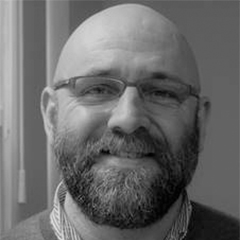
Peter Atherton is the Founder and Managing Director of Community Led Initiatives CIC, a non-profit social enterprise which supports people in their journey to overcome multiple and severe disadvantages. Peter spent most of his life in and out of the care system and prisons. Problems with drugs and mental ill-health became a constant factor for him in his day to day life. He has used his lived experience of recovering and rebuilding his life from these issues, to shape and inform the services he delivers. Peter also works closely with public services to develop local policies and systems which improve the experiences of those still engaged within support services. Peter has a passionate belief in the human capacity for change and hopes that our collective voice can achieve greater influence within power structures. As our influence grows and systemic changes are achieved, those we represent are both inspired and empowered to achieve more.

Sade Brown is founder and Chief Executive of Sour Lemons, a charity that addresses the lack of social mobility and diversity in leadership roles across the creative industries, developing young leaders of the future. As a young person, Sade was caught up in gang culture, addiction and abusive relationships. Today she is an award-winning social entrepreneur who has used her lived experiences to inspire and provoke positive change. Sade began her career as an apprentice at the Bush Theatre and went on to work as a Creative Producer for The Lyric Theatre, Ogilvy & Mather and The Barbican Centre. She is the Social Entrepreneur in Residence at UnLtd where she worked alongside Baljeet to drive a Leaders with Lived Experience project. She serves as a trustee for the Lyric Hammersmith Theatre and is a founding member of the Centrepoint Youth Parliament. Sade was recently recognised as a Trailblazer in Diversity by Campaign Magazine, a NatWest WISE100 Influential Woman in Social Business and is a Red Bull Amiphiko Fellow.

Louise Cannon is an Award Manager for UnLtd and a Clore Social and Winston Churchill Fellow specialising in new models of housing, social entrepreneurship, systems practice and innovation. Louise’s lived experience is on homelessness and abuse and she consults on models of codesign, using design thinking in service re-design and using system interventions to tackle social inequality. Louise has worked for over ten years as a coach to social entrepreneurs leading the Building Futures social innovation fund for UnLtd and having worked in both the charitable and public sector. Previous appointments include board positions for a charity and housing association and she is currently a board member for a local authority housing scrutiny function.
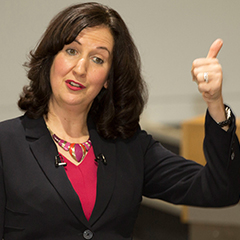
Jane Cordell My career has encompassed professional music, teaching and lecturing, editorial work, diplomacy, charity governance and being a coach, equality campaigner and social entrepreneur. This diverse career has provided me with some fantastic opportunities and some extreme tests of my resilience. I have studied and worked as a woman in male-dominated institutions, and since becoming deaf in my mid-twenties, encountering both the joy of difference and being able to use my influence to benefit large numbers of people, and the devastating and isolating experience of discrimination. My profound belief is that nobody can remove or devalue your experience unless you allow them to. This has enabled me to pool my rich and varied experience to achieve positive change for myself and others. Jane is co-founder and director of Results CIC.

Steph Cutler leads the development and implementation of Thomas Pocklington Trust’s Employment Strategy. She is responsible for establishing clear strategic long-term goals for the charity’s operations, interventions and activities relating to employment opportunities for blind and partially sighted people. Prior to this, she founded and ran Making Lemonade for 12 years, a disability equality consultancy delivering services to organisations in the social, public and private sectors, typically assisting Head of Services and HR professionals. Disability came into her life when she experienced unexpected sight loss, and Making Lemonade was born from her lived experience of acquiring her disability. She became personally and professionally interested in reducing and removing barriers for disabled people when she started to experience them for herself. She has won acclaim for her unique approach and commitment to disability equality as a leadership trainer, coach, professional speaker and role model for other disabled people. She is an RNIB sponsored 2016 Clore Social Leadership fellow and made the Shaw Trust’s Disability100 Power list last year and will be on their judging panel this year.

Sunny Dhadley is a TEDEx speaker, motivational speaker, systems analyst and social impact consultant – with lived experience of addiction. Sunny has worked within the substance misuse sector for the past 11 years who successfully developed a multi-award winning, peer-led community support service for people affected by addiction & other harms in Wolverhampton called SUIT. The model is revered for its effectiveness, professionalism and integrity, receiving the Queens Award for Voluntary Service in 2014 and in 2018 and named twice as a European Model of Best Practice. Sunny was shortlisted for The 2018 Guardian Public Service Awards, is a Fellow of the RSA (Royal Society for the Encouragement of Arts, Manufactures and Commerce), Operation Black Vote Alumnus, Windsor Leadership Alumnus and a Chartered Manager. He works tirelessly to push boundaries in relation to morals, ethics, practice and policy – particularly relating to Economic Empowerment, Drug Policy & Social Justice reform. He was recently appointed as a regional lead of the Labour Campaign for Drug Policy Reform.

Paula Harriott is Head of Prisoner Involvement at Prison Reform Trust (PRT). She leads on integrating prisoner voice and experience into the work of PRT, influencing policy, design, delivery and evaluation of services that affect those in the criminal justice system and ensuring that all policy and advocacy positions and recommendations from PRT are informed by lived experience insight. She leads the Prisoner Policy Network. She is a Trustee of the Community Chaplaincy Association, and a current Griffins Society Fellow, researching the experience of mothers and families post imprisonment. She was previously Head of Involvement at Revolving Doors Agency 2015-2107, Head of Programmes at User Voice 2010-2015. Her current passion for working with excluded members of the community on a diverse range of issues stems from personal experiences as a prisoner 2004-2012.

Kate Hitchcock is Grants Manager at the Paul Hamlyn Foundation working with youth organisations, and is passionate about asset based approaches to youth work. At the age of 16, she left home due to her parents’ issues with mental ill health, substance misuse and unemployment, and moved into Foyer, a scheme for young people providing sheltered accommodation and pastoral support. This experience ignited her passion for youth work, and after graduating from Warwick University, she became involved with the youth sector. Her early roles involved frontline work at home and abroad. She then went onto project management, working on major national programmes at UK Youth and the Foyer Federation, and became a Development Manager with a focus on asset based approaches. In her current role, she hopes to use her lived and learned experiences to make a difference in the funding world.

Luke Hunka is a Strategic Advisor for NHS England & Improvement where he advises on national policy such as the NHS Long Term Plan. He is currently managing the Healthy New Towns Programme which seeks to improve health outcomes by ensuring health is designed into new communities and housing. Prior to this role, he worked as the national programme lead for NHS Citizen which ensures that people and communities have an increasing say in national health policy development. Luke chairs several Boards including the HNT Network and Cross Government Network Roundtables. Previous roles have included senior programme manager for User Voice working across the criminal justice sector and various consulting/analyst posts. He is also the founder of Triple Lock; an enterprise designed to reduce reoffending and enable socially excluded members of society to become embedded within the community.
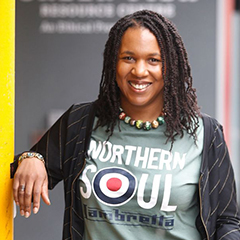
Ruth Ibegbuna is founder and director of the Roots Programme, a radical new initiative that believes our society benefits if we bring together people with hugely different lives in an authentic and meaningful way. Prior to this, she was founder and Chief Executive of ‘RECLAIM’, an award-winning social action and youth leadership programme with a focus on working class young people being seen, being heard and leading change. Before that, she was a senior teacher in a South Manchester state school. Ruth was named Manchester Peace Activist of the Year 2008; received the Manchester City Council Women’s award for Outstanding Contribution 2009; was awarded the 2011 National Business in the Communities Sieff award for best collaboration with business to benefit society and was a member of the Independent Commission on Youth Crime and Anti-Social Behaviour. Ruth is also a founding partner of the 2027 Programme. She was listed in The Sunday Times as one of the 500 most influential people in the UK and also listed by Virgin and Ashoka as one of the top six female change makers internationally.
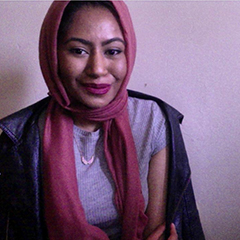
Farzana Khan is a writer, cultural producer & arts educator. She is the co-founder and director of Healing Justice London, bringing together marginalised communities and arts, activists and health practitioners to engage with creative culturally-sensitive strategies for public health and wellness. She was previously the creative and strategic director of the radical race, youth and art initiative, Voices that SHAKE!, at Platform London, where she worked with a broad network of artists, filmmakers and art-educators, and supported over 170 emerging practitioners. She developed and curated 8 art-education programmes, multiple showcases and events. She was also involved in the production of several films – including, ‘Surviving the State’ (featured in East End Film Festival), and‘Reach’ (shortlisted for the Small Axe Short Film Awards). Recently, Farzana curated the Black Cultural Activism Map, which was launched by the Stuart Hall Foundation. She is a trustee at the Racial Justice Network and is an internationally recognized cultural practitioner and public speaker. Farzana’s ground-breaking practices for self and social transformation emerged through her direct lived experiences and a 15-year career as a youth community organizer.
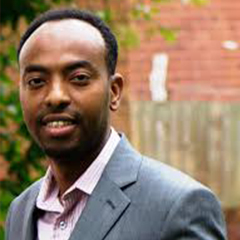
Fuad Mahamed: is founder and Chief Executive of Ashley Community Housing (ACH), a social enterprise he established in Bristol in 2008. Fuad came to the UK as a refugee from Somalia. He set up ACH in order to support the resettlement of refugees like himself. Starting with one property he has built the organisation into a leading provider of integration support. ACH now spans 3 cities, employs 70 people, and works with 2500 individuals each year, and provides supported housing for 700 tenants. Fuad was a 2016 Clore Social Fellow for Refugee and Migrant communities, and a 2018 Winston Churchill Fellow. Together with his colleagues at ACH, he has argued for a new approach to refugee assistance based on development rather than just humanitarianism.

Dominic Ruffy 9 years into his recovery from complex challenges, Dominic spent 7 years at the Amy Winehouse Foundation developing award winning co-created projects spanning addiction recovery, recovery housing, addiction education and prevention. He managed the Foundation’s lived experience Resilience Programme for secondary schools and the co-produced all female recovery house for young women. Dominic has been an expert adviser to UK funders on co-production, including: The National Lottery Community Fund’s (TNLCF) Multiple Complex Needs programme; Comic Relief’s IWill social impact investment programme and worked with TNLCF and Lankelly Chase to develop a national ‘co-production’ agenda. Previous to Dominic’s career in the voluntary sector, Dominic spent 12 years working in Investment Banking. Now an entrepreneur in the global renewable power and sustainable energy space, Dominic brings learning from diverse range of industries to the fore, evidencing the strength of co-created systems in multiple domains. Actively engaged with tech, Dominic is also leading an effort to bring future proofed mindfulness solutions to the corporate marketplace.

Baljeet Sandhu is a UK human rights lawyer, educator, and pioneer of the global knowledge equity movement, centering the value of both lived and learned experience to drive innovation, entrepreneurship, and social impact work. She is founder of the Knowledge Equity Initiative at the Tsai Center for Innovative Thinking at Yale, and a visiting fellow at the Information Society Project at Yale Law School. Baljeet is a founding partner of the 2027 Programme; a specialist adviser to the Clore Social Leadership Programme and expert adviser to funders, government, and national and international social purpose organisations. Previously, Baljeet was the founding director of the Migrant & Refugee Children’s Legal Unit (MiCLU). She has served as a Special Adviser to the UK Children’s Commissioner; the UK Home Office and has also served as an Expert Advisor to the Strategic Legal Fund for Vulnerable Young Migrants. She was the recipient of the UK Young Legal Aid Lawyer of the Year award in 2011; 2014 UK Clore Social Leadership Fellowship; 2017 Yale World Fellowship and is a fellow of the Vital Voices Female Global Leaders Partnership. In April 2017, she was honored with the DVF International Award during the Women in the World Conference at the United Nations.

Junior Smart is the Business Development Manager at the St Giles Trust. Born in south London, Junior began working for the St Giles Trust following his release from prison in 2006. He set up the SOS Project as an ex-offender led gangs intervention project offering intensive, tailored one-to-one support for young people caught up in the negative vortex of gangs and weapons crime. Initially started as a small south London pilot, SOS went onto become London’s largest gangs project; with a footprint across the capital helping over 600 young people annually to break free from gang, gun and knife crime and lead positive, productive lives in the community. Junior and his team have won multiple awards including The Charity Awards 2014, The Third Sector Excellence Awards 2011, the Centre for Social Justice Awards 2010 and The South London Press Awards 2008 to name a few. Junior was listed in the Evening Standard’s list of 1000 Influential Londoners in 2014 and 2015 in recognition of his campaigning work around the issue of London’s gang problem.

Cathy Togher is grant manager at the Tudor Trust and previously worked as the UK Stronger Communities Grants Manager at Comic Relief. She is also a founding trustee of the amazing NOMAD – a youth led migrant and refugee charity set up in 2016 by incredible young people in London. My Irish parents came over when they were 14 and 15 to find work and it was drilled into me that it is a given you support your neighbours and community no matter your income or class. Many viewed where we lived as disadvantaged, and in many ways we were – mostly by economical, racial and educational barriers that were put upon us. But in reality, we were a very tight community with many positives and a vast support network. I happened upon grant making whilst being a carer, through a temp job at a grant maker. I had never considered this as a career but saw immediately that my own personal experiences were an asset and I could help other people who had experienced similar things to me. I’m passionate about valuing lived experience and promoting people being able to take control of their own lives and stories.

Ozzie Uzoanya is a Social Work professional, and former Local Authority Councillor. Ozzie spent a lot of his childhood growing up in local authority care, leading to social marginalisation. In his early-twenties, Ozzie decided he wanted to live a safer and calmer life and help other young people achieve the same. Through the support of dedicated local youth workers, he enrolled on an adult education course to become a Social Worker. Ozzie has worked in Social Services in London and outside of London in both management and client facing roles for nearly 25 years. In addition to his social work practice, he is passionate about politics and advocating for greater investment in young people to help them thrive and steer them away from a life of violence, crime and long term unemployment. Ozzie believes that Britain needs more people with lived experience at the heart of its institutions to shape economic and social policy and play a major role in reshaping the institutions that govern society. It is only through this action that he believes society can achieve the greatest good for all and become a country that is at ease with itself and others.

Pete White is Chief Executive of Positive Prison? Positive Futures…a community of interest which draws upon the shared lived experiences of people who are or have been subject to punishment. Pete is responsible for building and nurturing many and varied links within and beyond the criminal justice system across Scotland. He sits on HM Inspector of Prisons in Scotland Independent Prison Monitoring Advisory Board, the Executive Committee of the Criminal Justice Voluntary Sector Forum, the Scottish Public Services Ombudsman’s Sounding Board and is a Director/Trustee & Vice Chair of Voluntary Health Scotland. He is also part of the Care Inspectorate High Level Advisory Group on Justice.
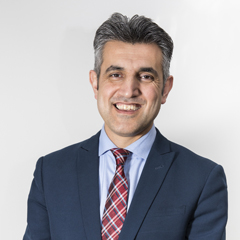
Sabir Zazai was appointed CEO of Scottish Refugee Council in September 2017. Prior to this role, Sabir was Director of the Coventry Refugee and Migrant Centre; managed the Migration Impact Fund in Coventry; and led a major improving financial capability programme with Coventry Citizens Advice Bureau. Sabir is currently Chair of City of Sanctuary UK; served as member of the Coventry Cathedral Council until September 2017. Sabir came to the UK in 1999, seeking protection from the conflict in his home country of Afghanistan. His early education was interrupted by the war in Afghanistan due to being internally displaced with his family. However, his resilience, hope and a strong desire for education helped him to graduate from Coventry University with a degree in Human Resources Management and a Masters in Community Cohesion Management. He is currently a Visiting Practice Fellow at the Centre for Trust Peace and Social Relations at Coventry University. Sabir has a wealth of knowledge about community integration that is informed both by his lived experiences and his research and campaigning background in conflict resolution and refugee rights.
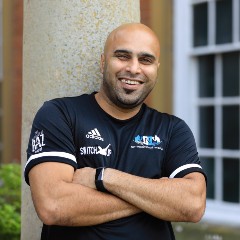
Marcellus Baz BEM is the founder and CEO of Switch Up CIC and Nottingham School of Boxing. The two organisations integrate sport, mentoring, education, counselling and innovative interventions devised through his lived, learnt and practice expertise to transform the lives of young people and transition them into employment, training, and further education. “Baz” was born in a deprived area of Nottingham, UK, and groomed into criminality and gang violence before dedicating his life to supporting communities affected by crime and violence. In 2016, Marcellus was awarded the BBC Sports Personality of The Year Award and a British Empire Medal. Baz is also a Ted X speaker, motivational speaker influencing social change. Baz works nationally and internationally with organisations that support deprived communities, the main target is vulnerable young people who are often from minority groups that will benefit from the Switch up model so they can believe in achieving a career outside of crime.

